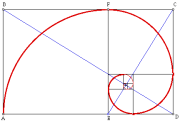When to buy a new computer, conclusion
How much RAM do I need, and other guidelines for buying a new PC. To conclude this series, I am going to review the topics covered, assume that you’ve decided that, yes, it is time to buy a new PC, and then give some advice on what to look for in a machine. I’m not going to get into a Mac versus PC debate, or talk you into trying Linux. I am going to focus solely on hardware (the ‘capabilities’) options of a non-Mac desktop or laptop PC.
Tip(s) of the day: Laptop computers. Most of what I am going to recommend today applies equally to laptops and desktops with very few exceptions. Today’s portable machines (notebook and tablet PC’s) very nearly rival the hardware capabilities of a desktop (or “tower”), and some models market themselves as a “desktop replacement”. They have large hard drives for storage, can ‘burn’ dual-layer DVD’s, have nice large screens, can access the Internet wirelessly, and are fast. Some have high-end graphics adapters that can keep up with the latest games.
Where laptops are different is; they are comparatively more expensive, they (often) depend on a battery, and they’re limited in terms of “expansion”. Expansion, quite literally, is room to “add stuff”, commonly referred to as “upgrading”. For this reason, I advise (when purchasing a notebook/laptop/tablet) differently than when buying a tower, to wit — buy the most machine you can afford. If you have to penny-pinch, reduce the RAM and/or go with a smaller hard drive… because these are the two components on a laptop that it is relatively easy to “upgrade” at a later date, when your finances have recovered. The other things — CPU, graphics, motherboard, sound, etc. — are not so easy to swap out/upgrade. In a tower there is practically nothing you cannot replace: in a laptop you’re kind of stuck, so buy as high up the scale as you can. Not just what you think you’ll need today, but buy for tomorrow as well. Because that’s the way the machine will be for its lifetime.
When deciding which model laptop, do not forget to compare battery life (these stats are published). Also, and I can’t stress this enough, do not buy a laptop that you haven’t typed on. Yes, you can make your purchase online or out of a catalogue, but go into a store and touch it first (sorry, all you Best Buy salespersons out there). Each keyboard and touchpad is different. Make sure you like the layout and “feel” of typing on the keyboard. There’s nothing worse (in laptop computing) than trying to work on a keyboard that just isn’t “you”.
Desktops. When considering which tower/desktop to buy, there’s basically three categories of machines; budget/student, workstation, and “performance”/gaming. Low, middle, and top-end. You can spend as little as $300, or as much as $8,500. (Yes. $8,500. But, those systems are cool!) I have mentioned before that to do it right, you can get everything you want/need for $900 – $1,200, and that even the budget machines have the “good stuff”.
My advice for what to look for in a desktop, is a little more flexible. Decide roughly what you’d like to spend. If you really are in the $3 -500 range, do not rule out “refurbished” machines. Rebuilt/refurbished machines are an excellent value. Any negative stigma they may have is unjustified. They are put together by geeks like me.
Get the most RAM you can. If your machine is coming with Vista (and most of them are), you should press for Home Premium — and Home Premium really should be run on 2 Gigabytes of RAM.
Go with a mid-to-high end CPU. The Athlon X2 chips are better than the older “dual core” Pentiums, but not quite as good as the Pentium Core Two Duo. (I know that’s confusing: there are two types of dual-core Pentiums. The D-series is the older type. You want either the Athlon or “Core Two Duo”.)
Optical drives. Unless you really need a ‘high def’ burner and you want it right now, hold off on going for a “Blu Ray” burner just yet. Two optical drives, while nice, is not a necessity. Do, however, make sure your “combo drive” can burn to a dual-layer DVD.
Graphics. Most people do not need a $800 graphics card (only us hard-core gamers, and other men of all ages, do) nor do they need an “SLI” set up. However, whenever your budget allows, it is almost always better to have a “graphics card” than “onboard graphics”. Onboard graphics chipsets are built into the motherboard, and while they do a quite adequate job, they “share” your RAM … and by that I mean “steal” your RAM.
Do not skimp on your monitor.
Power Supply. Do not forget to check the Wattage of the machine’s power supply. Here is another area where more is definitely better. It constantly surprises me how many seemingly unrelated computer ‘glitches’ and quirks turn out to be caused by an inadequate or failing power supply. Shoot for one that’s rated in the neighborhood of 300W, unless you’re going for a more “loaded”, high-end performance machine — in which case 500W, or higher, is not unreasonable.
Well, that should get you started. Buying a new PC should not be a stressful thing. It should be an enjoyable and rewarding experience. Just remember to test drive before you buy, and do a little comparison. It really doesn’t matter if you decide upon a no-name, a HP, a Sony, or whatever. You may want to take advantage of the many mix-and-match-components “custom build” option, and design your own PC. It doesn’t matter. Just get off of that dinosaur/boat anchor, and have fun.
Here are the links to the prior parts of this series: Part 1, Part 2, and Part 3.
I thank all you folks who have taken my brief opinion survey, and invite those of you who haven’t yet to tell me your thoughts on Tech–for Everyone. Click Here to take survey The survey is only five questions long, and won’t take but a moment of your time.
Today’s free link: To help shop for a new PC, another excellent shopper’s resource can be found at the PC World magazine’s website. Click here.
Copyright © 2007 Tech Paul. All rights reserved.
| Share this post : |

 Subscribe to Tech--for Everyone by Email
Subscribe to Tech--for Everyone by Email












Thanks for this information but my question is how to buy computer accessories online?
LikeLike
Nice try.
LikeLike